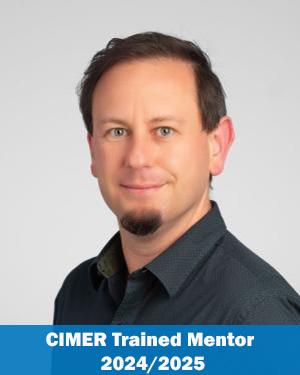Research News
12/20/2019
Connecting the Dots Between Diet, the Gut Microbiome and Cancer
Dr. Jan Claesen is interested in advancing studies on how dietary flavonoids modulate cancer risk, and where diet and gut microbiota factor into this relationship.

Jan Claesen, PhD, Department of Cardiovascular & Metabolic Sciences, has received an award from the Prevent Cancer Foundation to study how diet and the gut microbiome affect cancer risk.
Dietary flavonoids are naturally occurring compounds found abundantly in plant-based foods like fruits and vegetables. Their health benefits have been well studied—including their antioxidant and, as some preclinical studies have shown, tumor-inhibiting properties. With this award, Dr. Claesen is interested to advance understanding about how exactly dietary flavonoids modulate cancer risk, and how diet and gut microbiota factor into this relationship.
In order to unlock the health benefits of dietary flavonoids, they must be metabolized (broken down) by specific bacteria found in the gut. Interestingly, not everyone has the bacteria necessary for dietary flavonoid metabolism—those who do are called “converters,” while those who do not are “non-converters.” To identify the bacteria that are involved in flavonoid metabolism, Dr. Claesen and his team will compare the bacterial species found in the stool of converters versus non-converters and analyze their various functions.
Since the population of bacteria found in a person’s gut is directly related to what they eat, Dr. Claesen will also explore how diet—particularly one rich in fruits and vegetables—affects disease outcomes. Using a preclinical model of colon cancer, the researchers will measure how diet and converter or non-converter status affect tumor growth and spread.
In addition to providing valuable insights and a basis for future study about what diet(s) may best help to prevent or slow cancer, and who is most likely to benefit, Dr. Claesen hopes this project will help identify beneficial bacteria that may be developed as a probiotic supplement, which would help non-converters realize the full benefit of flavonoid-filled foods.
Dr. Claesen is a member of the Cleveland Clinic Center for Microbiome and Human Health, which seeks to investigate and understand the mechanisms by which the human microbiome impacts health and disease. The center’s ultimate goal is to develop novel therapeutics and disease management approaches to improve patient health and wellness.
The Prevent Cancer Foundation is the only U.S.-based nonprofit organization solely dedicated to cancer prevention and early detection, and has committed itself to stopping cancer before it starts.
Featured Experts
News Category
Related News
Research areas
Want To Support Ground-Breaking Research at Cleveland Clinic?
Discover how you can help Cleveland Clinic save lives and continue to lead the transformation of healthcare.
Give to Cleveland Clinic